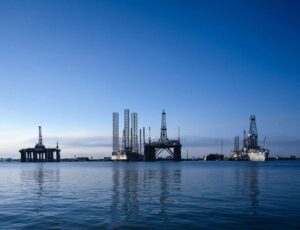
Court Sends Permit Back to the Drawing Board to Consider Issues Raised By Community
The court found that TCEQ arbitrarily denied requests for a hearing on the air permits from community members who live, work, and enjoy fishing and boating in the area that would be impacted by the terminal. The district court agreed with community members’ request that this violated the law and it decided to reverse and remand the air permits to allow for a proper hearing.
TCEQ’s denial of hearing requests for air permits is not new. In a 2022 petition filed before the U.S. Environmental Protection Agency, groups pointed out that TCEQ routinely and arbitrarily limits contested case hearings to people who live within one mile of a facility, regardless of the air pollution impacts.
“This court ruling should be a wake-up call to the Texas environmental agency to put people ahead of polluters,” said Ilan Levin, Environmental Integrity Project attorney.
“This is a victory for all Texans and the air that they breathe. Air pollution affects Texans where they live, work, fish, and play,” said Diane Wilson, fourth-generation shrimper and San Antonio Bay Estuarine Waterkeeper. “State agencies should have to consider community concerns about pollution they are permitting. It’s the right thing to do.”
The Judge’s order confirms that TCEQ unlawfully excluded impacted communities from the air permitting process for Max Midstream’s oil export terminal based on TCEQ’s narrow and arbitrary view of who is an “affected person.” Now, this permit must go back to TCEQ for a contested case hearing—an evidentiary trial before administrative law judges—where the Plaintiffs will provide evidence to demonstrate why the permit is not protective of public health and safety.
“It is common sense that shrimpers and fishers who work in Lavaca Bay where this project plans to emit air pollution will, in fact, be impacted by that pollution,” said Erin Gaines, senior attorney at Earthjustice. “The fact that TCEQ attempted to claim these Texans wouldn’t be impacted by the proposed pollution is both ludicrous and illegal. We will continue to fight for justice that protects impacted communities and the environment.”
“Here in Texas, the story of rich oil companies trying to take advantage of small communities – and the state just letting them do it – is, sadly, way too common,” said Jeffrey Jacoby with Texas Campaign for the Environment. “Today was a victory for the working Texans who make a living with their hands in the water to put food on their tables and ours.”
Max Midstream’s Seahawk Terminal is an oil storage and export terminal proposed for Point Comfort, Texas. The significantly expanded facility would have the capacity to store over 200 million gallons of crude oil and condensate in 15 storage tanks and export it on vessels through 9 marine loading docks.
San Antonio Bay Estuarine Waterkeeper, Texas Campaign for the Environment, and Diane Wilson are the plaintiffs on this lawsuit. They are represented by attorneys at Earthjustice, Environmental Integrity Project and Texas Rio Grande Legal Aid.
Media Contacts:
Brendan Gibbons, bgibbons@environmentalintegrity.org, 202-263-4458
Dustin Renaud, drenaud@earthjustice.org, 228-209-2194
Diane Wilson, wilsonalamobay@aol.com
Image: GetArchive.net


